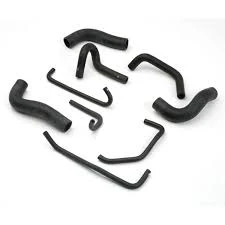Understanding SAE J2064 Hose Standards for Automotive Fluid Transfer Applications
កញ្ញា . 28, 2024 10:08 Back to list
Understanding SAE J2064 Hose Standards for Automotive Fluid Transfer Applications
Understanding SAE J2064 The Standard for Automotive Refrigerant Hoses
In the automotive industry, the efficient management of vehicle air conditioning systems is essential for comfort and performance. Central to these systems are refrigerant hoses, which play a vital role in the transport of refrigerants. One of the most recognized standards for these hoses is SAE J2064, which establishes guidelines and specifications for hose performance and quality in automotive applications.
Overview of SAE J2064
SAE J2064 is a standard developed by the Society of Automotive Engineers (SAE) that provides detailed requirements for the construction, performance, and testing of automotive refrigerant hoses. This standard is crucial for ensuring the reliability and safety of air conditioning systems in vehicles, as refrigerant hoses are directly responsible for transporting refrigerants between various components of the system.
Key Specifications
The SAE J2064 standard outlines several critical specifications that refrigerant hoses must meet. These specifications include
1. Material Properties The standard mandates the use of specific materials that can withstand the chemical composition of refrigerants and their operating conditions. Hoses must be made from materials that demonstrate resistance to degradation from refrigerants, oils, and other automotive fluids.
2. Pressure and Temperature Ratings Hoses must be capable of withstanding high pressures and a range of temperatures. SAE J2064 specifies minimum burst pressure requirements and operational temperature ranges that ensure the hose can perform safely and effectively under typical automotive conditions.
3. Flexibility and Bend Radius The standard includes requirements for the flexibility of hoses. Hoses used in automotive applications should exhibit adequate flexibility to accommodate their routing without kinking or collapsing, which could impede refrigerant flow and lead to system failure.
4. Durability Testing To ensure longevity, the standard prescribes various durability tests, including aging tests under specific conditions. This testing simulates the operational environment of the hose, ensuring that it will maintain its integrity and functionality over time.
sae j2064 hose

5. Leakage Resistance Leakage is one of the critical failures related to refrigerant hoses. SAE J2064 sets forth leak testing protocols to ensure that hoses maintain a hermetic seal and do not permit refrigerant loss, which can not only diminish system performance but also harm the environment.
Importance of Compliance
Compliance with SAE J2064 is vital for manufacturers and users of automotive refrigerant hoses. By adhering to this standard, companies can guarantee that their products meet industry benchmarks, thus reducing liability and enhancing consumer safety. Additionally, vehicles equipped with compliant hoses are more likely to operate efficiently, leading to better fuel economy and reduced emissions.
Applications Beyond Automotive
While SAE J2064 is primarily associated with automotive applications, its principles also extend to other industries where refrigerant hoses are utilized, such as HVAC systems, refrigeration units, and agricultural machinery. The standard's focus on safety, performance, and durability makes it relevant across various sectors that rely on fluid transfer systems.
Future Trends
As automotive technology continues to evolve toward more environmentally friendly refrigerants and systems, the SAE J2064 standard will likely undergo revisions to keep pace with new materials and technologies. The shift towards electric vehicles and the adoption of alternative refrigerants, such as CO2 and new synthetic options, will challenge hose manufacturers to innovate while adhering to established safety and performance standards.
Conclusion
In summary, SAE J2064 is a critical standard for the automotive industry, providing essential guidelines for the manufacturing and testing of refrigerant hoses. Compliance with this standard ensures that hoses can effectively and safely transport refrigerants, contributing to efficient air conditioning systems and overall vehicle performance. As the industry evolves, ongoing adherence to and development of standards like SAE J2064 will be essential in promoting safety, environmental responsibility, and innovation in automotive design.
